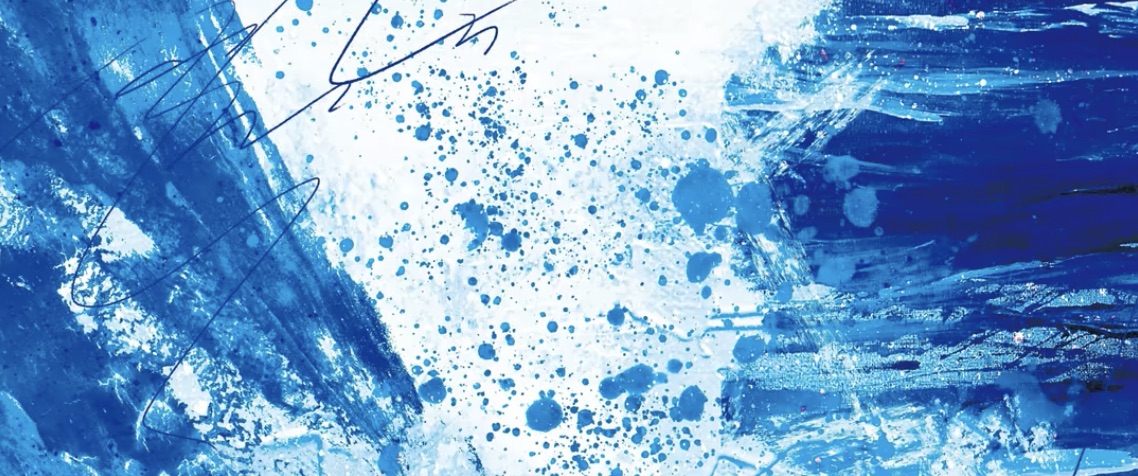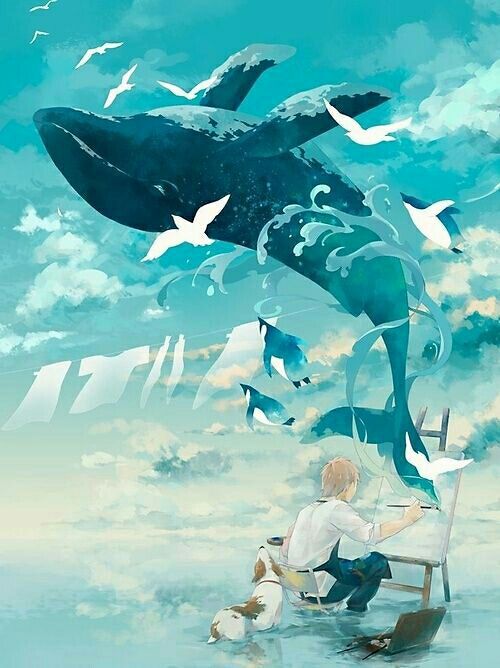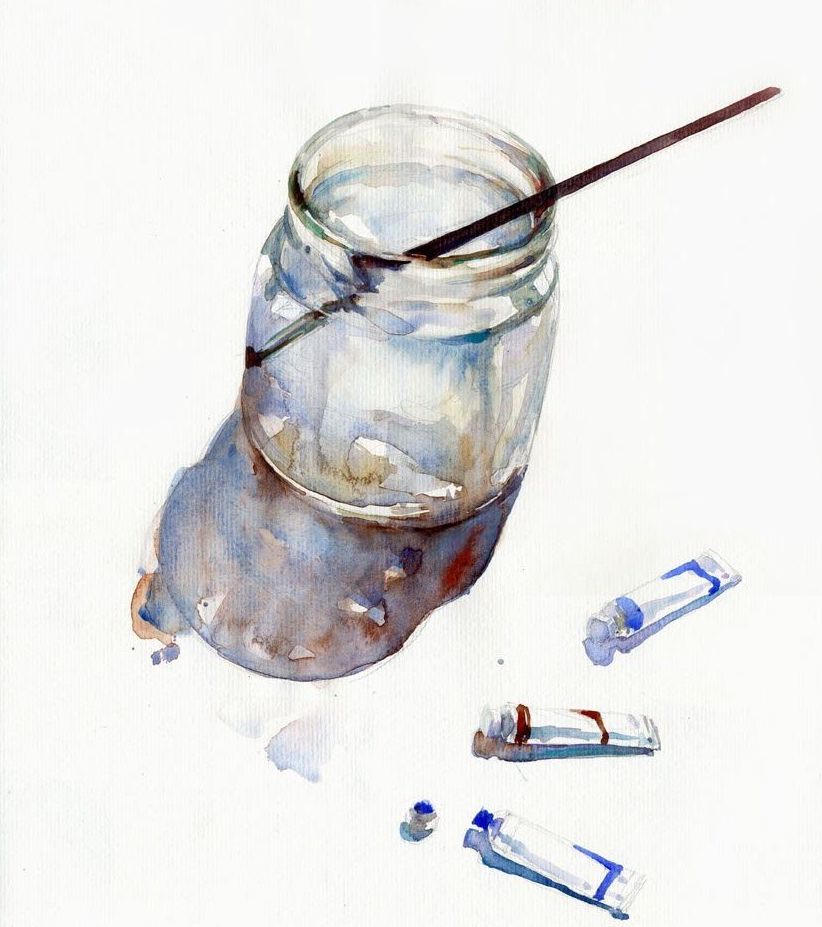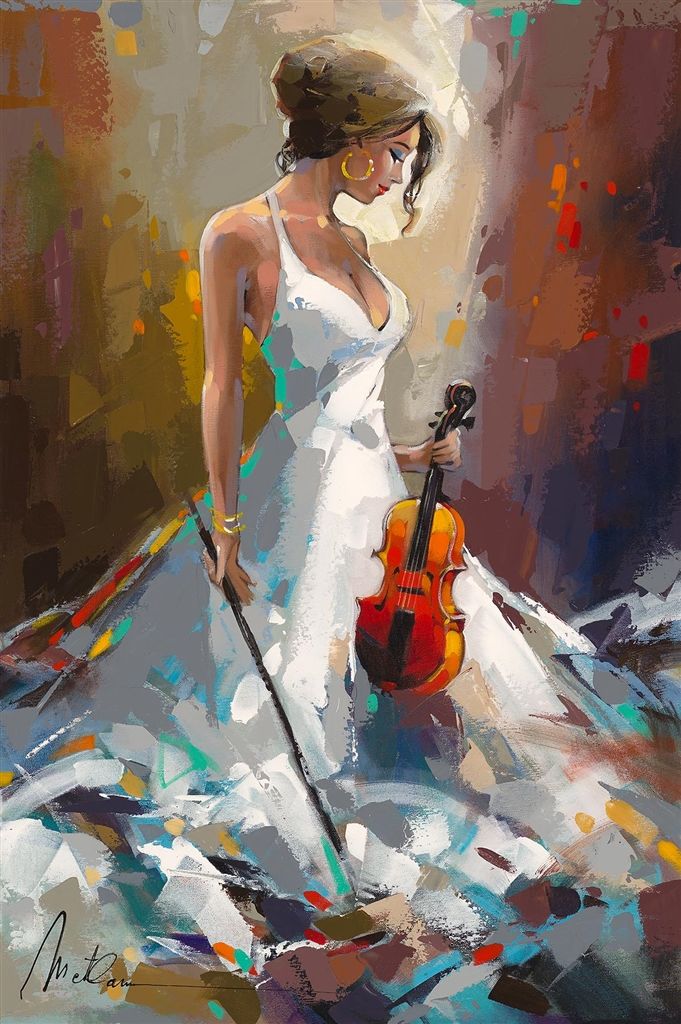
Blue Period

Have you ever had the experience of feeling overwhelmed when drawing the first line on an empty canvas? Have you ever felt confused when staring into one of the greatest art pieces in the world? Art is often considered to be exclusive and could only be done and understood by a selected few. However, it turns out that art is just another form of communication that anybody can get involved. Today I would like to introduce a Japanese Manga that allows me to view art in a way that I have never imagined, which is “Blue Period.”
The story follows a boy, Yatora Yaguchi, who was inspired by his senpai’s artwork and stumbled into the world of art. Yatora was a “successful” high school student, at least from the perspective of the society. He was good at studying, easygoing and was the popular kid in class. Yet, deep down he felt empty. Studying and hanging out with friends to him was just like clearing the quests. He simply invested a little more time than others so that he got a better result. Until one day, he accidently came across his senior’s art piece. Astounded and intrigued by it, Yatora painted the scenery of Shibuya with various shades of blue later in art class, which perfectly captured the tranquility of Shibuya in the early morning. When the tranquil atmosphere was conveyed to his classmates through those blues, the spark inside him was ignited, and he later decided to apply for Tokyo University of the Arts. During his journey of pursuing art, it was all about questioning himself, working hard, feeling accomplished, then doubting everything, exploring and continuing to find answers for himself. And this cycle just goes on and on. Despite the pain and joy that come with art, and that this path was far from easy, those new feelings make Yatora felt alive, and that was what kept him going.
Art is a language without words
“Art is quite fun. Especially for those who are honest with themselves. It’s a language without words.” These words spoken by Yatora’s art teacher seems to capture the essence of art for me. Art is never only about making beautiful and impressive creations. It is more about facing ourselves, and trying to find our own answers to this complicated world. If one is able to be honest with themselves and create an art piece wholeheartedly, as Yatora did with his painting of Shibuya, art can be regard as a way of heart-to-heart communication. “For the first time in my life, it felt like I communicated with others for real.” This was what Yatora said after completing that painting. Since everyone lives a different life, I believe everyone view the world somehow differently. Therefore, art provide us with an opportunity to get a glimpse of other people’s believes and perspectives towards the world.

The dichotomy between hard work and talent
Whenever people see a brilliant athlete, an outstanding musician or anyone phenomenal, they often use the word “talented” to compliment them. But what does being “talented” really means? Does being "talented" really matters that much? And is being "talented" even a compliment after all? When Yatora saw his senpai’s incredible painting and said to her, “you are so amazing and talented,” she replied, “I’m not talented at all. It’s just that I spend more time thinking about art than others…so when you simply call it talent like that, it makes it sound like I haven’t done anything.” Yatora did not realize the existence of paradox in his words. When Yatora himself was considered talented at studying by his classmates, he argued that he was simply spending more time on it than others. I understand where this paradox is coming from since especially in the field of art, being talented or not seems to matter more for many people. However, personally I think having passion and being hardworking is what matters the most just like doing any other thing in the world.
Another interesting question that was brought up in a later episode is whether being hardworking can be considered a kind of talent. Yatora disagreed and thought that he was being extra hardworking to compensate for his lack of confidence. Yet, some of his classmates view being hardworking as a talent, since apparently not everyone can achieve that. Of course, hard work doesn’t guarantee success, but I think we can all agree that being hardworking is important to some degree and that it is never an easy thing to do.
Should we turn our hobbies into a career
I believe that we have all been asked that question when we were kids, “What do you want to be when you grow up?” And most kids answered with their interests and hobbies. Yet, as we grew up, people who choose to follow their hobbies as a career is the minority. When Yatora was contemplating whether or not to continue pursuing art, he was constantly asking himself “Isn’t drawing for a hobby enough? Why should I take it seriously?” Yet, his art teacher then said “ ‘Do what you enjoy as just a hobby.’ I think that’s a too much of an adult perspective…. It’s only natural for people to invest their lives on things they are most passionate about.” This was “her” answer to this question. However, the correct answer does not exist, and what matters more is to find the answer for ourselves.
Art is very realistic when it comes to not having standard methods and answers. Though I haven’t found mine by reading this manga, it really inspires me to start drawing. I will keep on trying to create art work that reaches the heart of people and enjoy the process as much as possible!
Lastly, I would like to recommend the song, 群青, which was created by Yoasobi based on this story. » Click here to listen!

